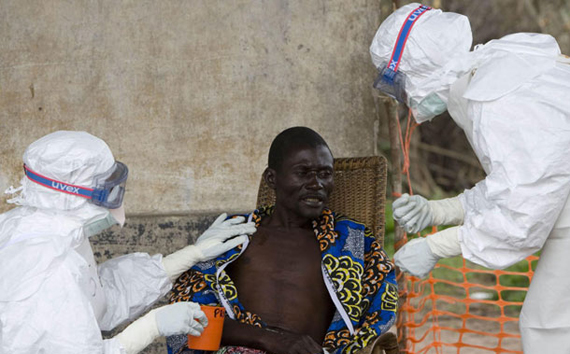
A ZIMBABWEAN doctor has flown to West Africa to aid health workers in the fight against the deadly Ebola virus outbreak that has so far claimed over 700 lives in Guinea, Liberia and Sierra Leone. NQOBANI NDLOVU STAFF REPORTER
Ebola is a rare but deadly infection that causes bleeding inside and outside the body.
Health workers have not been spared as they are at greater risk of contracting the disease which spreads through contact with bodily fluids. There is no known cure for the infection.
Ebola has killed a Liberian doctor and another from Sierra Leone while two American health workers were flown back to their country after contracting the disease.
Lincoln Charimari, who is the head of disease prevention and control at the World Health Organisation (WHO) Zimbabwe country office, flew to West Africa recently to help in the fight against the disease. Health and Child Care minister David Parirenyatwa said Charimari’s trip to West Africa was part of Zimbabwe’s efforts to offer a helping hand in the fight against the deadly infection.
“One of our doctors, Charimari, is now in West Africa to help other doctors, specialists and health workers to combat the spread of the Ebola outbreak,” Parirenyatwa said in Gweru last week during the handover of the Gweru Provincial Hospital’s casualty ward constructed by Unki Mine.
Parirenyatwa said Zimbabwe was on high alert to avert an Ebola outbreak in the country.
The WHO on Friday said the disease was fast spreading and warned that there was a high risk of it spreading to other countries.
- Chamisa under fire over US$120K donation
- Mavhunga puts DeMbare into Chibuku quarterfinals
- Pension funds bet on Cabora Bassa oilfields
- Councils defy govt fire tender directive
Keep Reading
“Our health professionals are at the borders and airports monitoring the situation. We are on high alert to prevent any outbreak of Ebola . . . we have to be vigilant to keep away the scourge from our borders,” Parirenyatwa said.
“The risk is there though minimal, but we should not take chances. We are co-ordinating with other Sadc countries on this to ensure that the region is free from the disease which has no cure.”










